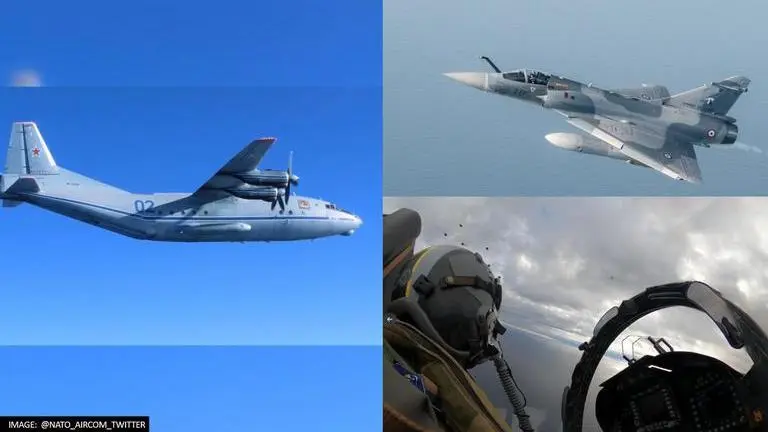Updated 29 April 2022 at 21:06 IST
NATO jets scramble 'multiple times' to intercept Russian aircraft over Baltic & Black Sea
In the Black Sea region, QRA aircraft from Romania and the UK have been launched to investigate “unknown tracks” approaching Allied airspace.
- World News
- 3 min read

NATO fighter jets stationed in the Baltic and Black Sea regions have scrambled “multiple times over the past four days” to track and intercept Russian aircraft near Alliance airspace, a statement posted by NATO’s Allied Air Command said. NATO radars tracked a number of unidentified aircraft over the Baltic and Black Seas since Tuesday, April 26.
In response, NATO's Combined Air Operations Centres (CAOC) at Uedem, Germany and Torrejón, Spain, launched Allied fighter aircraft in their respective regions to intercept and identify the approaching aircraft, the Allied Air Command of NATO said. NATO’s air command stated that the Quick Reaction Alert (QRA) fighters from Poland, Denmark, France and Spain have been airborne at different times in the Baltic Sea Region since Tuesday to safeguard Allied airspace from Russian fighter jets.
In the Black Sea region, QRA aircraft from Romania and the UK have launched to investigate “unknown tracks” approaching Allied airspace. “All interactions occurred in a safe and routine manner,” NATO said in the statement.
(Spanish F-18s tracking a Russian aircraft over the Baltic Sea not conforming with international air safety regulations. Image: NATO/Spanish Air Force.)
Advertisement
Allied fighters from 🇵🇱🇩🇰🇫🇷🇪🇸 in the Baltic Sea region and 🇷🇴🇬🇧 in the Black Sea region have scrambled multiple times over the past four days in response to Russian 🇷🇺 aircraft near Alliance airspace
— NATO Air Command (@NATO_AIRCOM) April 29, 2022
Read more: https://t.co/0K7LCZ2V9A pic.twitter.com/E6SxD4eYUK
“Allies deployed from the North to the South of Europe remain unified in support of the Nato Air Policing mission,” said Major General Jörg Lebert, Chief of Staff, Allied Air Command.
“The quick response of Nato’s two CAOCs, demonstrates Nato forces’ readiness and capability to guard Allied skies 24 hours a day, 7 days a week, 365 days a year,” Major General Lebert added.
Advertisement
(French Mirage 2000 operating from Amari Airbase, Estonia scrambles in response to Russian aircraft near Allied airspace. Image: NATO/French Air Force.)
Russian Air Force 'does not transmit a transponder code': NATO
According to NATO, Russian military aircraft often “do not transmit a transponder code,” indicating that their position and altitude cannot be tracked. Russia’s Air Force pilots do not file a flight plan, or do not communicate with air traffic controllers, posing a potential risk to civilian airliners, said NATO.
The fighter jets of the Alliance nations patrol the skies “around the clock,” and are ready to scramble in case of suspicious or unannounced flights near the airspace of its Allies, the Alliance further stated. Air policing is key to providing security for its members, it said. Fighter jets from Poland, Denmark, France and Spain have intercepted the Russian fighter jets multiple times since the latter launched an all out invasion in Ukraine. NATO jets have identified several approaching aircraft.
Published By : Zaini Majeed
Published On: 29 April 2022 at 21:06 IST


